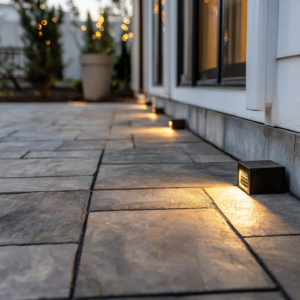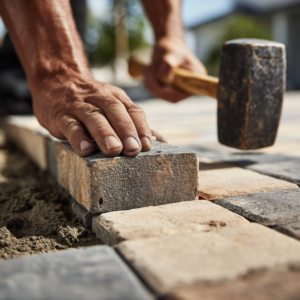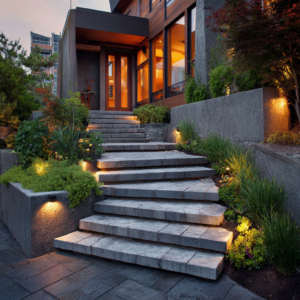Anyone who has worked with pavers know the importance of a carefully planned installation. The planning goes down even to the optimal weather in which to perform said installation. So, can you install pavers in the winter, under cold weather?
It’s no secret that few things bet the elegance and reliability of a beautiful paver installation. A well planned and performed installation can last for years and years, whereas a rushed one, without proper care, can give you big headaches in the future.
Unfortunately, many people forget to take into consideration weather conditions at the moment of installation. That leads to unforeseen consequences, and often homeowners find themselves with more than they can chew if the project was tackles from a DIY perspective.
So let’s discuss how cold weather influences in the installation and maintenance of pavers.
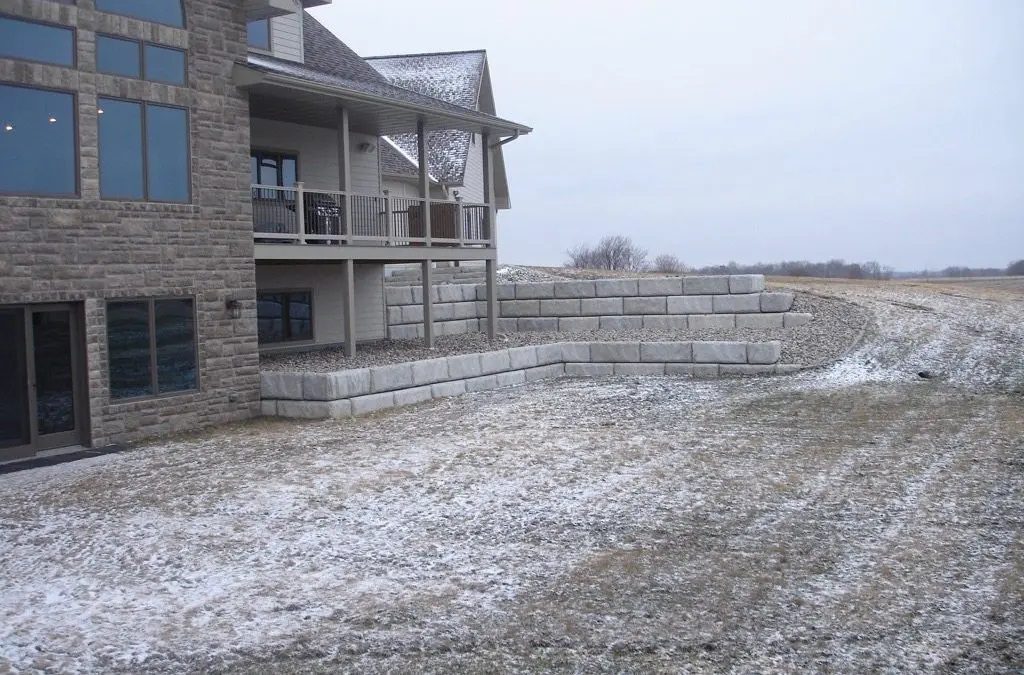
Jump to:
Installation of Paver in Cold Climate
For starters, let’s give you an information that you may not know: paver installation involves digging.
It is important for you to know that, so you can understand how cold climates can even make a difference in the whole process.
So exactly how cold are we talking about?
If the region you live in does not go through extreme cold, with heavy snowfall and frozen ground, you have nothing to worry about. However, if those are common factors in your area, you might want to take some time to plan things better.
A frozen ground not only is harder to dig, but can also be brittle, making the excavation less precise. It is very important that you know what kind of soil you’re working with.
Basically, there are three types of way your soil can be formed: sandy, clay and silty.
Clay soil is the worst to work with due to the presence of large quantities of water in its structure. This water freezes during winter and can make the process very difficult.
Sandy and silty soils, however, are not affected that much, but still get slightly more difficult to work with.
Also, if snow is a big factor, it can heavily affect your installation.
The hole in which your pavers are going to be placed needs to be covered with geotextile fabric, gravel and sand. As could see, snow is not a part of it. So if you can’t protect the hole from snow, you perform the installation on a day with no snow in the forecast.
So, to summarize, yes, you can install pavers in the winter. As long as you are mindful of these factors, if they are not too severe, you shouldn’t have a problem.
Maintenance of Pavers During Winter
The main problem during extreme cold weather are the freeze-thaw cycles. This happens when the temperature is low enough to make the ground freeze, and then melt again.
When this happens, the ground beneath the pavers expand and contract constantly. This can cause the pavers to shift around. In extreme cases, it can even cause frost heave, a swelling of the soil that can breach the surface.
This process is natural and pretty much unavoidable, but there are some measures you can take to minimize its effects.
The best measure you can take is to ask for professional help. Professionals in the hardscape business can make the perfect installation, taking into consideration all the unique characteristics of your project.
They will make sure the bedding and drainage are installed optimally, two key factors to fight the freeze-thaw cycles. With proper drainage, there won’t be water to be frozen, and the right bedding will prevent the ground beneath the pavers from expanding.
Another important aspect is that pavers need to be sealed.
Sealing pavers prevents them from absorbing water and become victims of the freeze-thaw cycles. Also, it helps with surface water drainage, as long as a proper slope in ensured.
Also, another very common practice is to salt patios during freezing conditions. That is not recommended with pavers. The salt can seep into the pavers and expand, causing the frost heave effect.
The Secret Advantage of Paver Installation During Winter
But the winter can also bring some good opportunities alongside the cold.
During winter, there’s a significance decrease in the search for hardscape projects. People don’t usually associate winter with hardscape work so, during this time, you can find some wonderful bargains in the market.
Prices, both of materials and services, can drop, as well as the waiting time for available help of professionals. If you live in a region there is not affected by extreme cold, where, essentially, winter does not make that much of a difference, it might the best time for you to start your project.
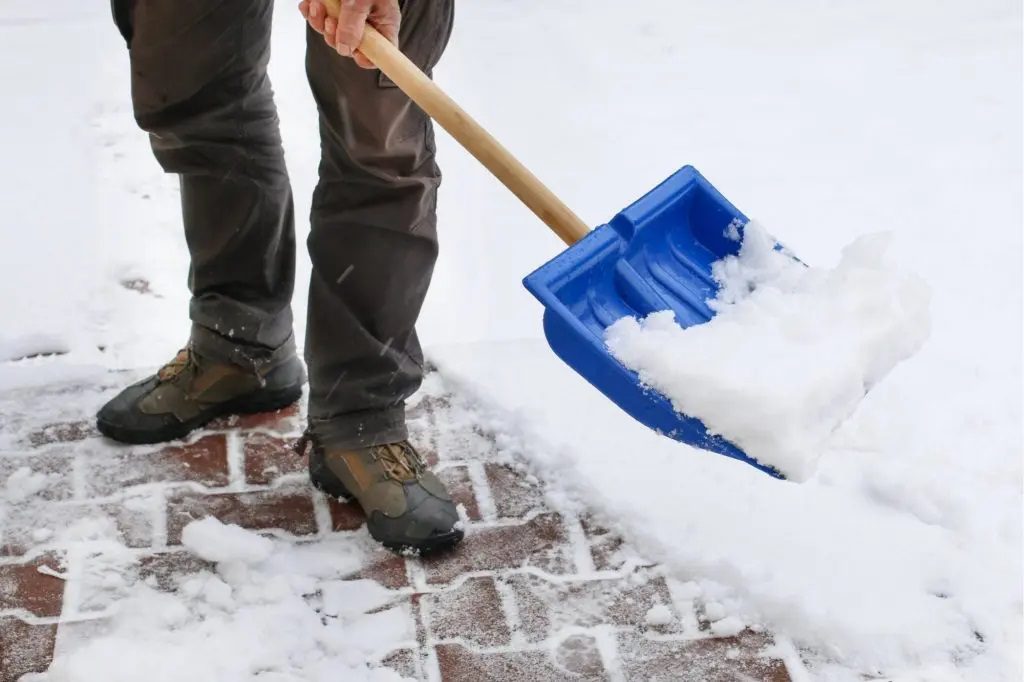
Can You Install Pavers in the Winter?
Yes. Yes, you can. Following our hints, you can perform a paver installation even in the most extreme of weathers.
In less extreme regions, it doesn’t even make that much of a difference, and it can even be a good opportunity to get some lower costs.
In either case, the best thing you can do is to abandon the DIY perspective and reach qualified professionals to help. This is especially important in extreme cold regions.
Nothing beats the quality and reliability of working closely with professionals. This can help your installation withstand the winter and last for years on end without giving you maintenance headaches.
We here at JS Brick have helped hundreds of homeowners with their project during our 20 years of activity. Both in hot and cold weather, we know the importance of working with professionals to make the best possible installation. We highly recommend looking around your area for a qualified professional.
In fact, if you happen to be around our area of activity, the Sarasota and Manatee counties, in FL, why not give us a call to help you?
Contact us right now at +1 941 586 9140 or email us at [email protected]. We would be happy to hear from you and help you with any hardscape need you might have.

